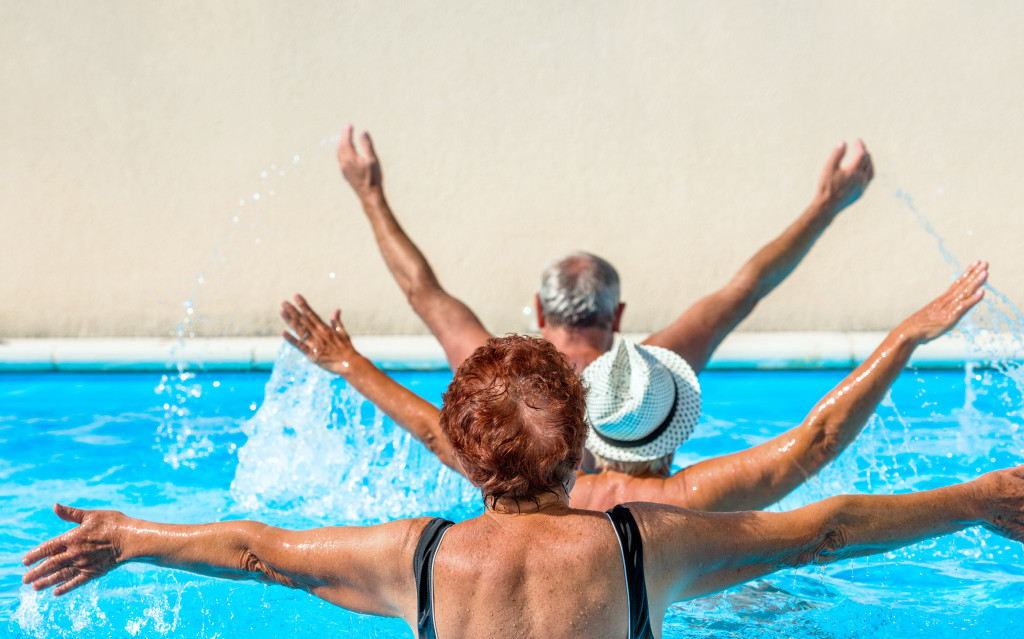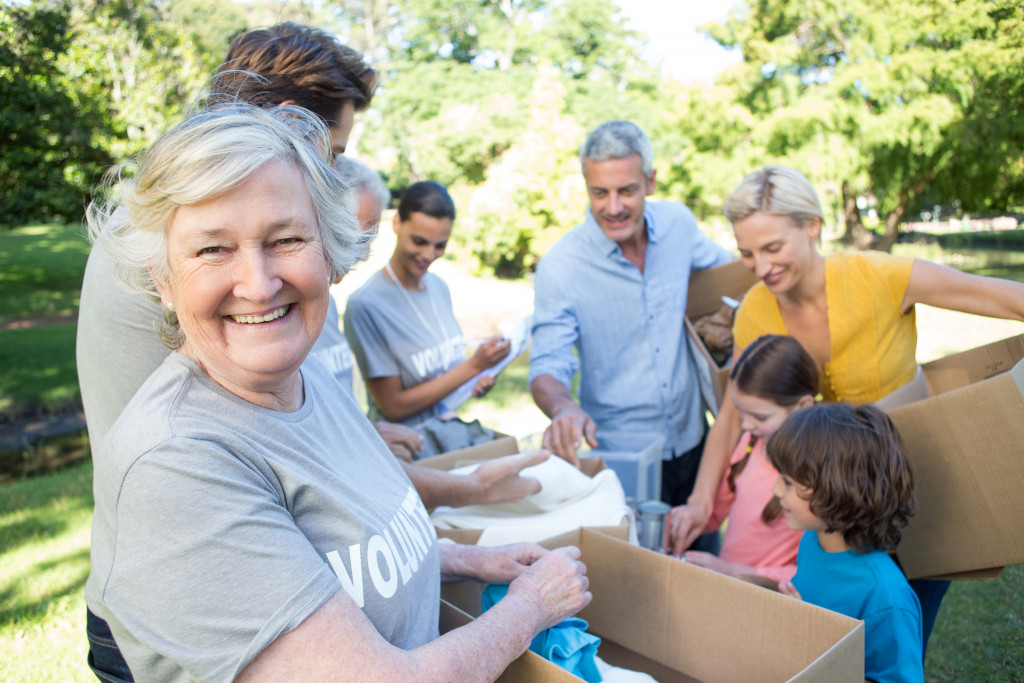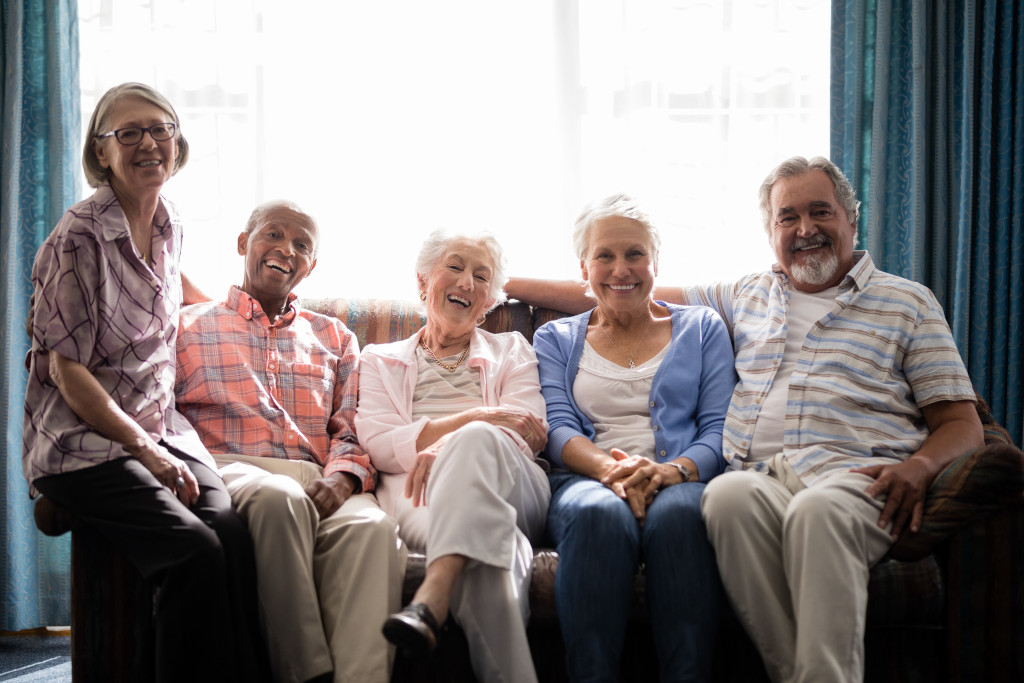• Elderly citizens benefit from physical and mental activities such as walking/jogging, yoga/tai chi, swimming/water aerobics, strength training, and stretching.
• Mental exercises like sudoku, crosswords, and word games help to sharpen cognitive abilities.
• Volunteering offers both physical and psychological benefits, as well as providing invaluable services to those who need them.
• Educational classes also allow seniors to continue learning while socializing with like-minded individuals.
• Libraries provide free computer classes that teach basic skills such as emailing or navigating websites.
As the population ages, it is essential to recognize and emphasize the importance of keeping the older population active in their communities. Numerous mental and physical benefits are associated with engaging older adults in activities such as volunteering, exercise programs, educational classes, and more. Take a look at why keeping the elderly engaged benefits them and society as a whole.
1. Physical Activity Programs
Physical activity programs are among the best ways to ensure seniors remain active and engaged in their community. Exercise helps to improve overall health, reduce stress levels, strengthen bones and muscles, improve balance and coordination, increase energy levels, improve sleep quality, and reduce depression rates. Additionally, physical activity programs are an excellent way for seniors to socialize with like-minded individuals while maintaining a healthy lifestyle. Here are some examples of physical activities for seniors:
a. Walking or jogging in the park
Many cities offer walking and jogging trails for seniors to use. This can be an excellent way for them to get exercise and fresh air while adhering to social distancing guidelines.
b. Yoga or Tai Chi classes
Yoga and Tai Chi classes are low-impact forms of exercise that can be modified to accommodate any physical limitations. They also teach mental and emotional well-being, which benefits seniors dealing with stress or anxiety.
c. Swimming or water aerobics
Swimming and water aerobics can benefit seniors more than land-based exercises. The natural buoyancy of the water helps reduce joint stress and can offer a more enjoyable and comfortable workout experience.

d. Strength training and stretching
Strength training and extension can help seniors to maintain their independence, improve balance and coordination, and reduce the risk of falls or other age-related illnesses.
2. Mental Exercises
Mental exercises can help keep seniors sharp and engaged in their community. Various activities that stimulate memories and problem-solving skills can improve their cognitive abilities. Additionally, mental exercises can help seniors cope with stress and anxiety while engaging in activities that keep them active and motivated. Some examples of mental exercises for seniors include:
a. Sudoku
These math logic puzzles are excellent for increasing problem-solving skills and mental alertness. They also offer a great opportunity for seniors to socialize and share their experiences with others.
b. Crosswords and word games
Crosswords and word games can offer a fun and stimulating way for seniors to engage in mental activities. These provide excellent opportunities for seniors to challenge themselves while providing an enjoyable way to pass the time.
c. Craft projects
Craft projects are an excellent way for seniors to stay engaged and stimulate their creativity. From knitting to painting, there are many craft projects that seniors can engage in. This is also an excellent way for them to socialize and make new friends.

3. Volunteer Opportunities
Volunteer programs provide another excellent opportunity for seniors to stay engaged in their community while giving back to those around them. Volunteering not only has positive physical benefits (such as an increased physical activity), but it can also have significant psychological benefits—including improved self-esteem and increased feelings of purpose. Furthermore, volunteer programs often provide invaluable services to those who need them most—such as children or those living with disabilities—which can bring about lasting joy for both volunteers and recipients alike.
4. Educational Classes
Seniors who wish to continue learning have various options outside of traditional schooling settings. Seniors can sign up for courses at local universities or community colleges that offer classes specifically designed for older learners. These classes may focus on topics ranging from history and art appreciation to computer skills or foreign language instruction—allowing seniors to expand their horizons while having fun in a relaxed atmosphere surrounded by people of similar age groups.
Additionally, many libraries offer free computer classes tailored toward senior citizens that can teach basic computer skills such as emailing or navigating websites. These classes often prove invaluable when it comes time for seniors to use computers or other electronic devices daily.
The benefits of keeping the older population active within their communities are undeniable. Numerous mental and physical health gains are associated with engaging seniors through various activities such as volunteer programs, exercise programs, educational classes, etc. By encouraging the elderly to get out and stay active, they can maintain a higher quality of life while also bringing joy and vitality to the community.

